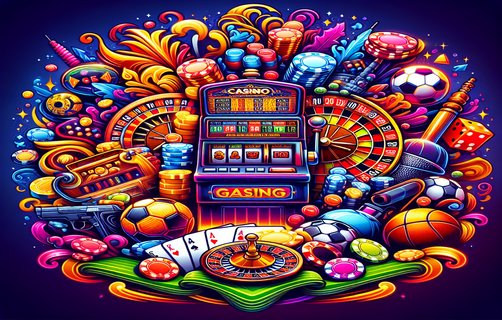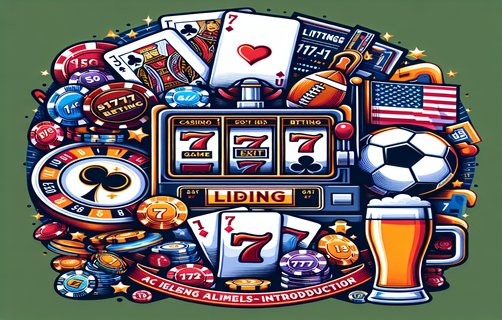Comprehensive Analysis of Emerging Trends in the Casino Gaming Landscape

The casino gaming landscape is witnessing a significant evolution driven by various factors, including game innovations, behavioral trends, and responses to global events such as the COVID-19 pandemic. This report analyzes key aspects shaping the industry today, focusing on Roulette, Caribbean Stud Poker, Bubble Play Strategies, the impact of Casino Reopenings, Gambling Satisfaction Surveys, initiatives from GambleAware, and strategies for Playing Against Loose Players.
Roulette remains one of the quintessential games of chance, characterized by its rich history and widespread appeal. The game continues to attract players due to its simplicity and the strategic layering opportunities it offers. Recent trends indicate a rise in live dealer roulette games, blending traditional gameplay with the immersive feel of physical casinos. Operators have also leveraged technology to offer online variants that cater to diverse audiences, providing enhanced features like multi-wheel options and innovative betting systems, thereby sustaining engagement in a competitive market.
In the domain of poker, Caribbean Stud Poker has gained traction as a popular choice for players seeking high stakes and exciting gameplay. Unlike traditional poker games where players compete against each other, Caribbean Stud Poker pits players against the house. This distinct format appeals to new players who may feel intimidated by the complexities of Texas Hold'em. With its inherent house edge and progressive jackpot options, Caribbean Stud Poker has contributed positively to casino revenues, reinforcing its ongoing significance in gaming offerings.

The concept of Bubble Play Strategies has emerged as players seek ways to maximize their returns in low-risk environments. Bubble play refers to the strategy of playing conservatively until the “bubble” of a tournament burst, at which point players can afford to be more aggressive. This strategy not only aids in surviving longer within tournament contexts but also enhances the overall gaming experience by reducing the potential for significant losses. As more players become aware of such strategies, we observe a shift in how games are played and analyzed, leading to a more tactical approach in recreational environments.
Looking at Casino Reopenings, the post-pandemic recovery phase has witnessed a cautious but optimistic return to traditional gaming floors. Many casinos have implemented health and safety protocols, including social distancing measures, to ensure player safety while fostering a welcoming environment. The reopening has rekindled interest in physical gaming establishments, igniting promotional campaigns and loyalty programs designed to attract prior customers and entice new ones. Key indicators suggest that while online gaming remains popular, the in-person experience is irreplaceable for a segment of dedicated players.
Gambling Satisfaction Surveys are becoming a vital tool for operators to understand player preferences and anxieties. These surveys provide critical insights into customer experience, addressing areas such as game variety, service quality, and overall satisfaction levels. By analyzing and responding to feedback, casinos can streamline their offerings, enhance player engagement, and foster loyalty—elements crucial for long-term sustainability in an increasingly competitive landscape.
Furthermore, organizations like GambleAware are instrumental in promoting responsible gambling practices. As the industry enhances its focus on player safety, GambleAware's initiatives to educate and provide support for problem gambling are becoming essential. Their campaigns emphasize responsible gaming habits, creating a safer familiarity with casino environments and helping mitigate the societal impact of gambling addiction.
Finally, Playing Against Loose Players poses a unique challenge and opportunity for serious gamblers. Loose players, often characterized by their high erratic betting patterns, can create exploitable situations for skilled players. Understanding the tendencies of loose players allows skilled gamblers to adjust their strategies accordingly, capitalizing on these players’ overzealousness. Strategic play against loose opponents can lead to significant profit increases, highlighting the importance of adapting gameplay tactics in dynamic environments.
In conclusion, the casino gaming industry is at a pivotal juncture, shaped by innovative game developments, evolving player behavior, and a renewed focus on responsible practices post-pandemic. Stakeholders must remain attuned to these trends to harness growth opportunities while ensuring a safe and enjoyable gaming experience for all participants.
